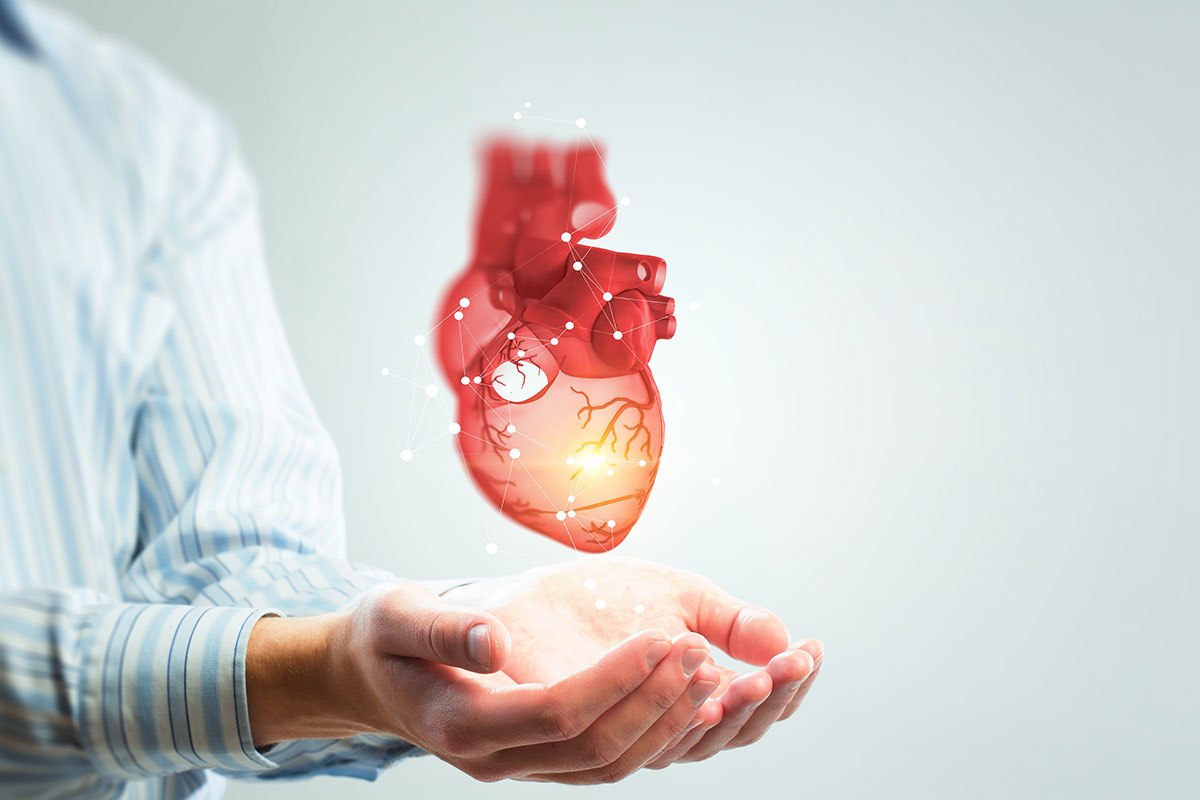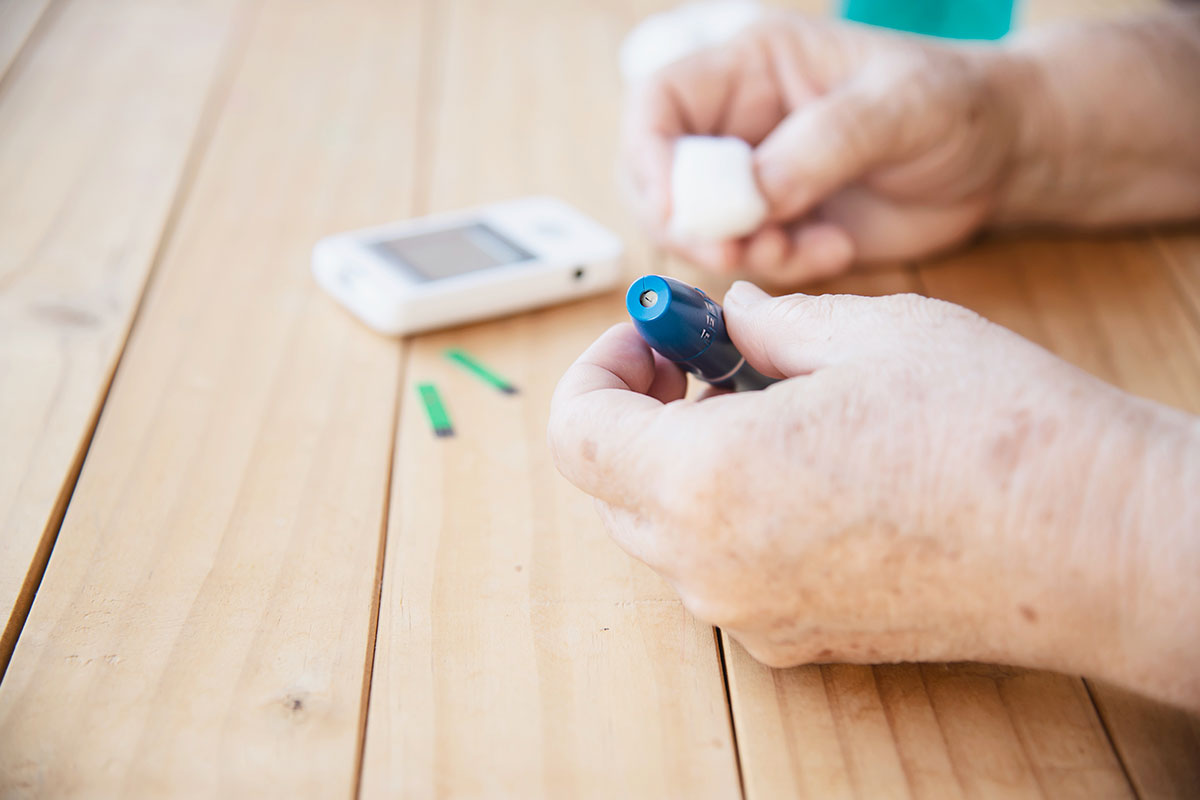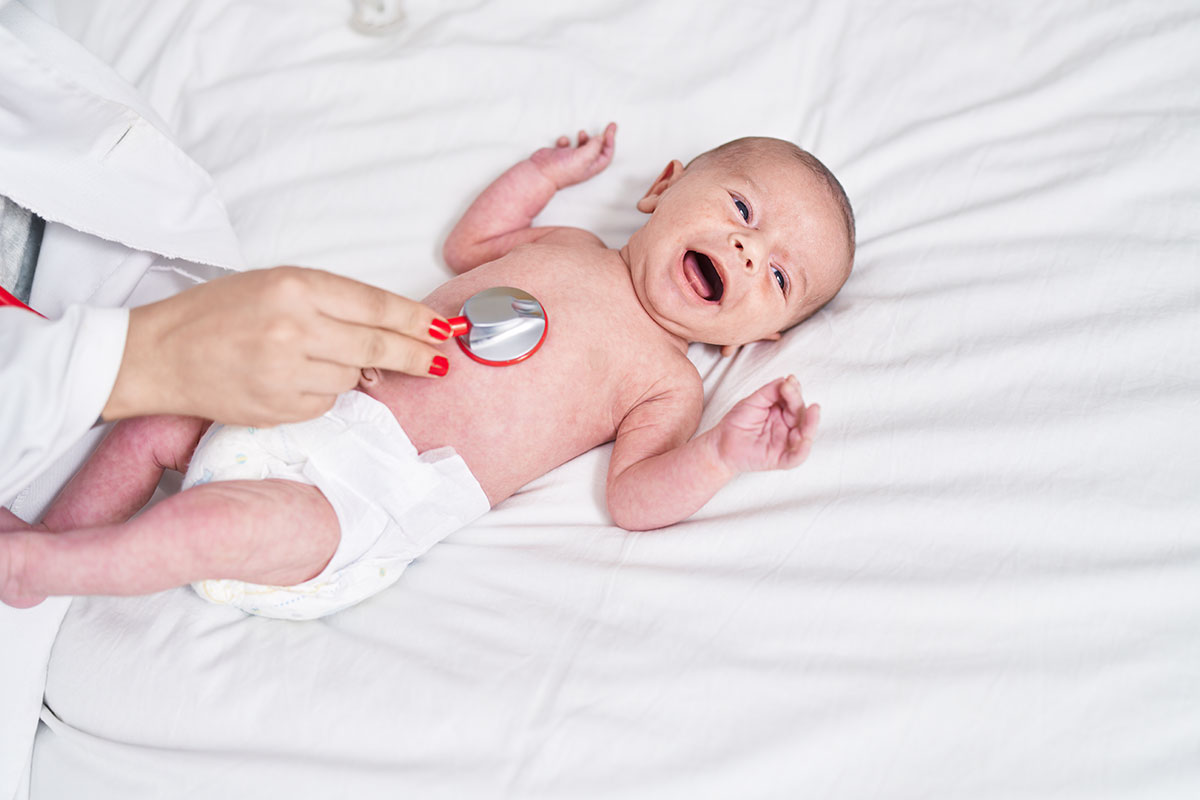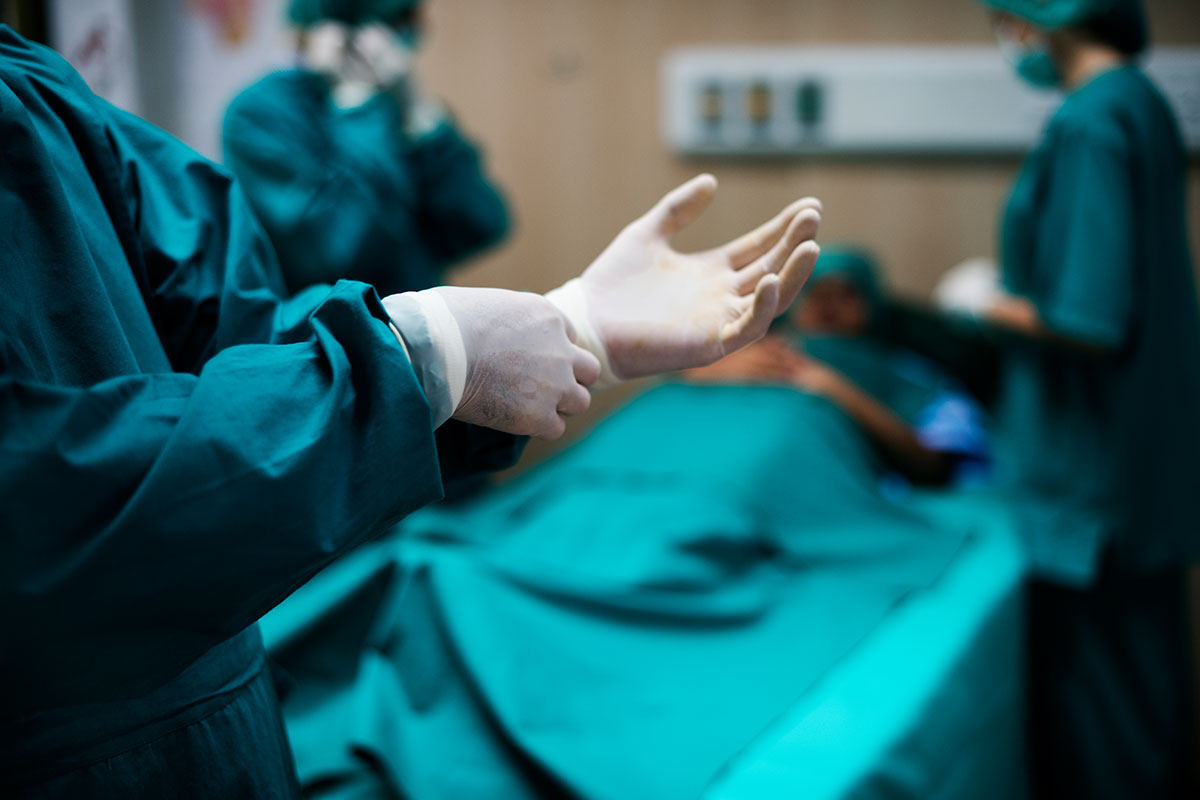
MIRENA – An Alternative To Hysterectomy In Heavy Menstrual Bleeding
By Dr. (Prof.) Purshotam Lal in
Aug 31, 2020
Menstrual bleeding is a natural biological function post-puberty until menopause, however, certain women suffer from Heavy Menstrual Bleeding which can lead to a condition known as Menorrhagia. Though not all Heavy Menstrual Bleeding conditions can be diagnosed as Menorrhagia, they still can lead to severe health complications and discomfort in general. One should consult the best gynecologist in Delhi NCR for proper diagnosis.
Heavy bleeding during periods affects around 1 in 5 women in the age group of 30 to 40 years. Heavy menstrual bleeding is a common cause of morbidity among women causing anemia, weakness, chronic fatigue reduced immunity, and weight loss. A comprehensive check-up may be required at the best multispeciality hospital in India.
Symptoms of Heavy Menstrual bleeding
Heavy menstrual bleeding can be easily identified by the excessive menstrual fluid discharge during menstrual periods. Some of the other signs of Heavy Menstrual Bleeding are:
- Need to use several sanitary pads every hour
- Requiring double sanitary protection to control your menstrual flow
- Menstrual discharges for more than a week
- Discharging blood clots
- Feeling tired and anemic
- Constant fatigue along with shortness of breath
In case of heavy menstrual bleeding one is advised to consult a Gynecologist Obstetricians in Delhi immediately.
What is Menorrhagia?
Heavy menstrual bleeding for prolonged periods leading to anemia, severe pain, reduction in hemoglobin due to Iron deficiency is diagnosed as Menorrhagia.
The common causes of heavy menstrual bleeding and Menorrhagia are:
- Hormone imbalance. It causes excessive development of the endometrium (the lining of the uterus which sheds during menstruation) eventually leading to heavy menstrual bleeding. It can be caused by polycystic ovary syndrome (PCOS), obesity, insulin resistance, and other problems such as thyroid problems.
- Ovulatory Dysfunction: Non-ovulation during a menstrual cycle leads to the non-production of the hormone progesterone. This can lead to hormone imbalance and resulting in Heavy Menstrual Bleeding.
- Uterine fibroids. The uterus fibroids may appear during pregnancy. They may lead to prolonged or heavy menstrual bleeding.
- Uterine Polyps: Small growths on the uterus lining may lead to prolonged or heavy menstrual bleeding.
- Uterine Cancer and Cervical Cancer: It can also cause excessive menstrual bleeding.
- Menorrhagia or heavy menstrual bleeding can also be attributed to Adenomyosis, Use of non-hormonal intrauterine devices, pregnancy complications, and other medical conditions. Certain medications can also contribute to heavy or prolonged menstrual bleeding. One should consult a online gynecologist to check for all the possible reasons.
- Sometimes the cause of heavy bleeding may remain unknown (idiopathic), in which case a comprehensive diagnosis becomes necessary.
Menorrhagia or Heavy Menstrual Bleeding Diagnosis
Investigations of heavy menstrual bleeding should include Transvaginal Scan, Dilatation & Curettage (D&C), and Endometrial Biopsy, besides the routine Haemogram, Thyroid Function Test, Blood Sugar Check, etc. Heavy menstrual bleeding ven for short periods should not be ignored as they may lead to severe complications, one is advised to get in touch with the best gynecologist immediately.
Prescribed Treatments for Menorrhagia or Heavy Menstrual Bleeding Diagnosis
Treatment of Heavy Menstrual Bleeding is individualized depending on the age of the patient, need for contraception, desire to retain fertility, nature, and severity of complaints, presence of pelvic pathology outcome of previous treatment, cost of treatment.
Aim of treatment is to offer a healthy future and femininity perseverance.
The first-line treatment of Heavy Menstrual Bleeding is usually drug therapy.
Drug therapy includes NSAIDS, antifibrinolytic agents, oral contraceptives, cyclical progesterone therapy, GnRH analogues. If the results from drug therapy are not favorable then surgical methods are opted.
Surgical methods include endometrial ablation and hysterectomy. Endometrial ablation is a procedure that surgically destroys or ablates the lining of the uterus. Endometrial ablation is not suitable for a very large uterus.
The other surgical option for treatment of Heavy Menstrual Bleeding is ‘Hysterectomy’ It is considered as definitive treatment for heavy menstrual bleeding by Gynecologists, but should be opted upon failure or all other conventional methods.
30% of women in the reproductive age group suffer from menorrhagia and 60% of these women ultimately end up opting for Hysterectomy (surgical removal of the uterus).
Hysterectomy is the 2nd most frequent surgical procedure in women of reproductive age group and 90% of these are for benign reasons (noncancerous tumor growths). Hysterectomy is a major surgical procedure with a major postoperative complication rate of 3.5% and morbidity rate of 0.38/1000 and it has psychological effects also too. Gynecologists are of opinion that alternative to hysterectomy should be considered.
Alternate Treatment for Menorrhagia or Heavy Menstrual Bleeding
MIRENA is the most recommended alternative to usual treatments offered for Menorrhagia or Heavy Menstrual Bleeding.
It is a T shaped hormone-releasing intra-uterine device loaded with Levonorgestrel (LNG), which is a very safe drug. It releases 20 micros of LNG daily and prevents endometrial proliferation thus reducing bleeding.
The MIRENA insertion procedure is simple, painless, takes, and can be done on an OPD basis with anesthesia in about 10-15 minutes. The cost of the MIRENA insertion procedure is far less than hysterectomy and other oral hormone therapy, which needs to be given for months together.
Post about 10-15 minutes there is an 80% reduction in blood loss in the first 6 months. Periods may become less frequent and the amount of bleeding also reduces.
The MIRENA has known to be effective in moderate-sized fibroids, endometriosis, adenomyosis. It has the additional advantage of producing reversible contraception, at the same time future childbearing ability is also preserved. Life of MIRENA is about 5 years after which it may be changed or removed depending on the condition of the patient.
Side effects of The MIRENA
The effects of the MIRENA on BP, cholesterol, liver function, bone density, carbohydrates, metabolism, coagulation factor, lipid profile are much less than oral hormone therapy as blood levels of the drug are 4 times lower than oral hormone therapy.
Few problems that may happen sometimes with MIRENA include irregular bleeding for the initial few months after insertion, as it may take 6 months for the full effect of MIRENA to come and during that time additional hormonal treatment may be required. Sometimes there is spontaneous expulsion of MIRENA reinsertion that may be required. Sometimes patients become amenorrheic after inserting MIRENA.
Conclusion
Mirena can replace the need for Hysterectomy in 50% of patients. We at the Metro Hospitals have been successfully using MIRENA in our patients. We have been able to prevent Hysterectomy in High-Risk patients such as very obese patients, patients with previous 3 cesareans, multiple surgeries, patients with coagulopathy, and patients on blood thinners. All these patients are doing well post MIRENA procedure.
We at the metro group of hospitals are always committed to realizing the vision of providing world-class healthcare at an affordable cost and to achieve excellence in Healthcare services by offering exceptional care through state-of-the-art technology.
The Metro Group was established in the year 1997 by Padama Vibhusan, Padma Bhusan and Dr. B C Roy National Awardee Dr. Purshotam Lal with the vision to provide world-class healthcare amenities to his countrymen at an affordable cost.
Metro Group of Hospitals are the leading healthcare centers in our country boasting an ultra-modern infrastructure providing multispeciality care by an exceptional team of healthcare professionals under the leadership of world-renowned interventional cardiologist Dr. Purshotam Lal. We at Metro hospitals provide multispecialty care for 35 Chief and Allied-specialities that include Anaesthesiology, Cardiology & CTVS, Dentistry, Gastroenterology & Gastro Surgery, Internal Medicine, Neurosciences, Obstetrics and Gynaecology, Oncology & Onco Surgery, Orthopaedics, Joint Replacement & Spine Surgery, Paediatrics & Neonatology, Physiotherapy Plastic, Cosmetic & Reconstructive Surgery, Pulmonology & Sleep Medicine, Rheumatology, Stem Cell Therapy, Bariatric & Metabolic Surgery, Blood Bank, Dermatology, Endocrinology And Diabetes, ENT & Cochlear Implant, Haemotology, Holistic Medicine, Homeopathy, Interventional Radiology Laboratory, Laparoscopic & General Surgery, Nephrology & Renal Transplant, Nutrition & Health, Ophthalmology, Metro Eye Centre, Psychiatry, Psychology, Radiology, and Urology.
Dr. Purshotam Lal is an internationally acclaimed Interventional Cardiologist who epitomizes the best in professional excellence and service to humanity, especially the poor and the needy.
Dr. Lal was trained at world renowned medical institutions in the UK, Germany, and the USA. He is fellow of American College of Cardiology, American College of Medicine, Royal College of Physician (Canada), British Cardiovascular Interventional Society, German Society of Cardiovascular Research, Fellow of Society of Cardiac Angiography and Interventions, USA, etc. He has the unique distinction of pioneering the largest number of procedures in the field of Interventional Cardiology for the first time in the country such as Slow Rotational Angioplasty, Atherectomy, Rotablator, Stenting, Heart hole closure, etc.
He has developed techniques of Aortofemoral bypass support (partial artificial heart), Opening of tight heart valves with echo without cath lab. He has performed the first case of Non-surgical heart hole closure (ASD) with monodisc device and the first case of Non-surgical aortic valve replacement with core valve, both being the first time in the world. He is the first investigator of Inoue Balloon Mitral Valvuloplasty in the Country and his name has been listed in the ‘Limca Book of World Records’.
A crusader against unethical commercialization of medical services, he has committed himself to provide to the middle class, poor and the needy the latest cardio-vascular procedures at the most affordable cost. In pursuance of his mission, he has established thirteen state-of-the-art Hospitals and three satellite units. Such is Dr. Lal’s commitment to his mission that an ever-increasing number of poor patients have been treated either free of cost or at concessional rates and ‘No patient is ever turned back for want of money’. He has been named as ‘Creator of Affordable Healthcare’ by ‘Express Healthcare’, a leading health magazine and has been a trendsetter for NRIs to return to India to serve the needy people.
Dr. Lal has been decorated with several prestigious awards:–
- 2nd Jawaharlal Nehru International Excellence Award (1990), Rajiv Gandhi Award (1991), Dr. V.V.Shah Oration Gold Medal by Cardiological Society of India (1992) for his pioneering contributions in Interventional Cardiology.
- Distinguished Achievement Award of Highest Order by the National Forum of Indian Medical Association (2006-07) for performing the largest number of angioplasties/stenting as a single operator in the country.
- ‘Life Time Achievement Award’ by Shri Arun Jaitley on behalf of Delhi Medical Association and ‘Life Time Achievement Award’ by Dr. Lilly Engineer, Professor of Harvard University on behalf of ‘Times of India’.
- Padma Bhushan (2003), prestigious Dr. B.C.Roy National Award (2004) and Padma Vibhushan (2009) by the President of India.
He has contributed over one hundred research papers, articles, chapters and authored a book “Cause and Prevention of Heart Diseases”. He has been a Member at Central Council of Health and Family Welfare, Expert Committee for medical devices, Ministry of Health, Govt. of India, Delhi Medical Council, Standing Committee ESI Corporation – Ministry of Labour & Employment, Govt. of India and Member Board of Governors, Medical Council of India from May 2011 to May 2013.







